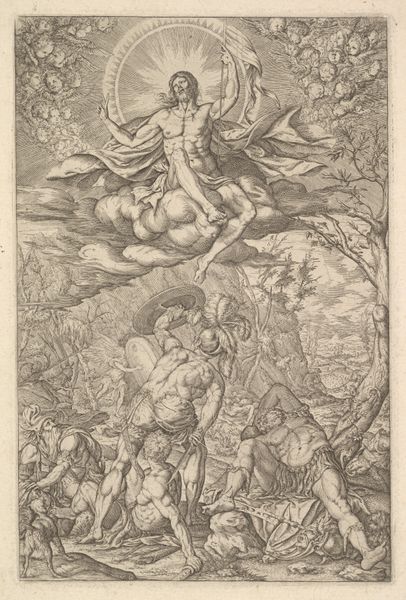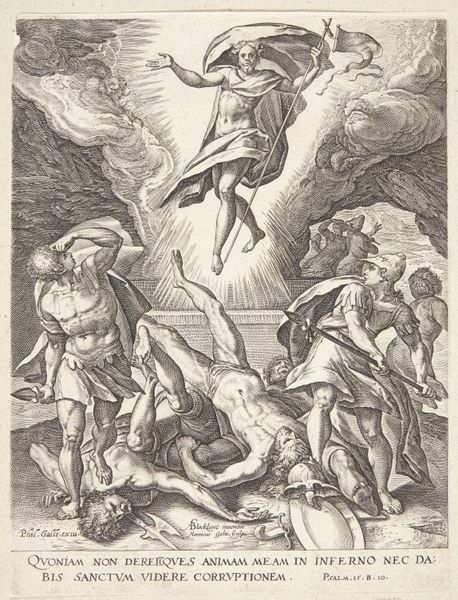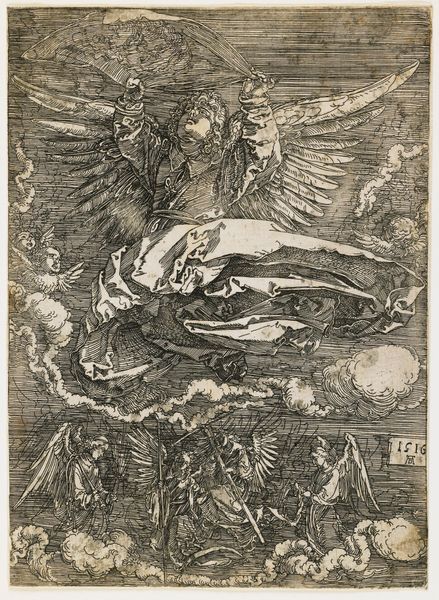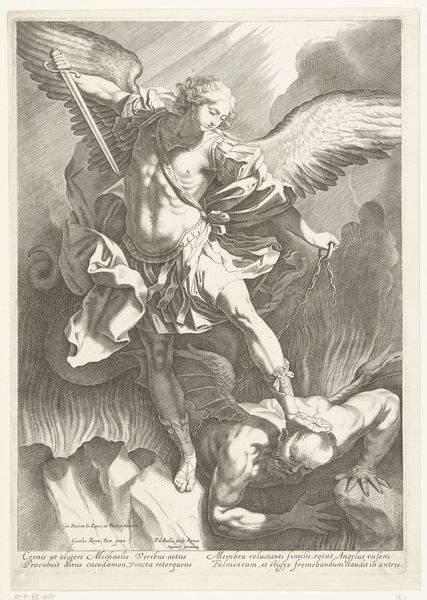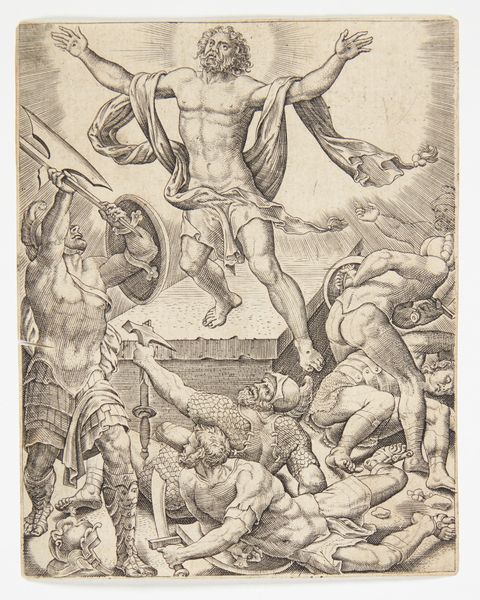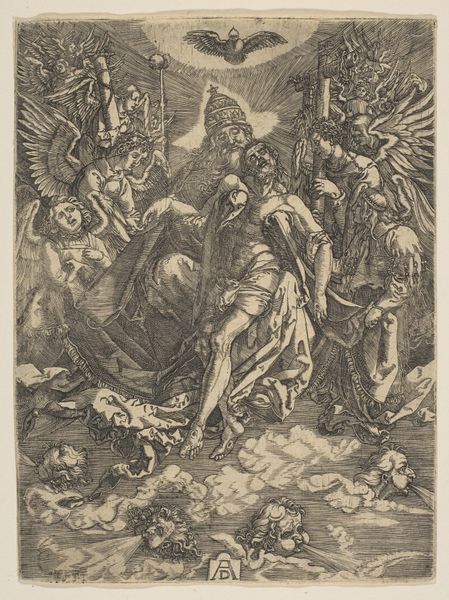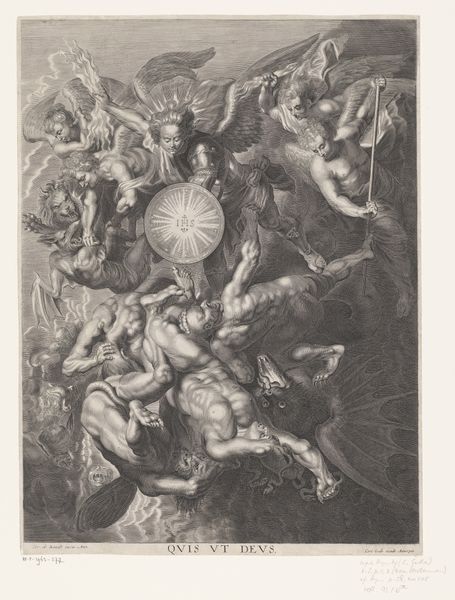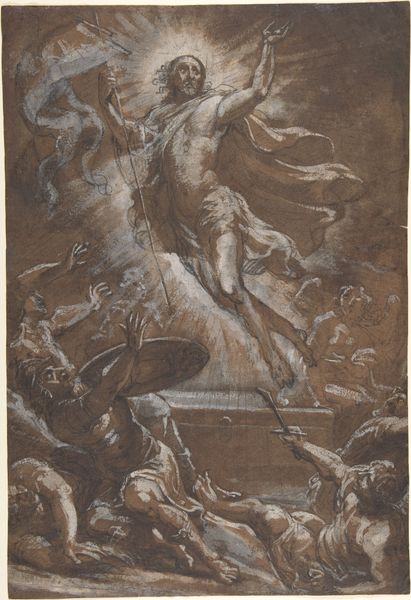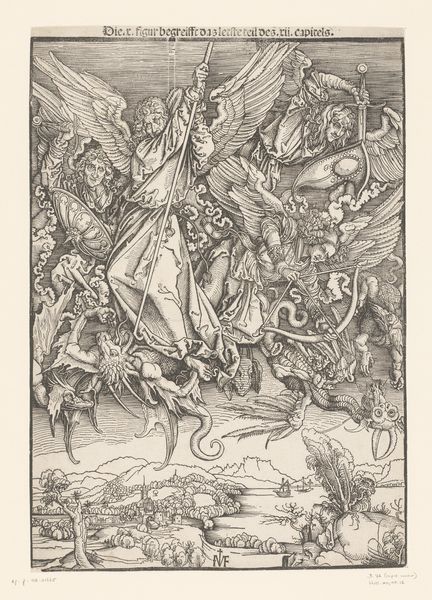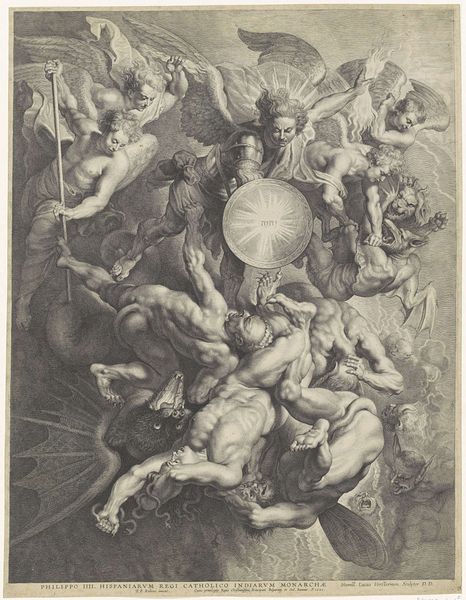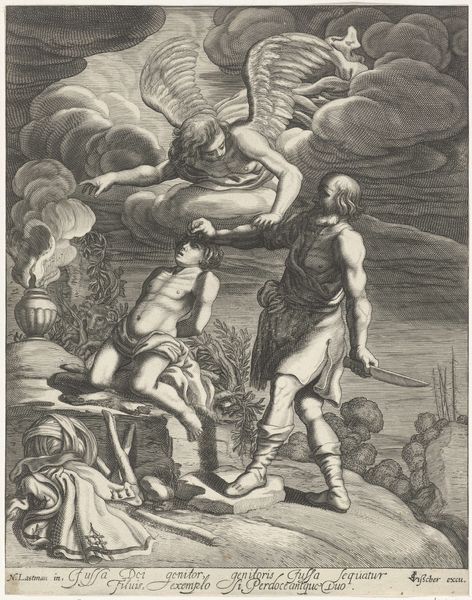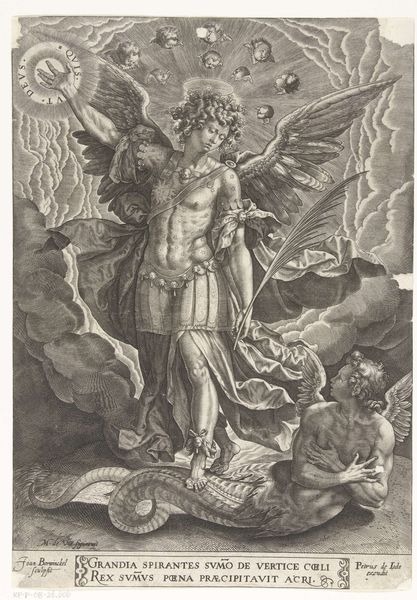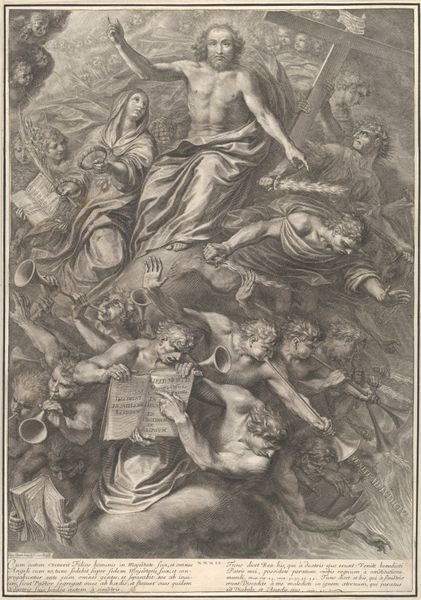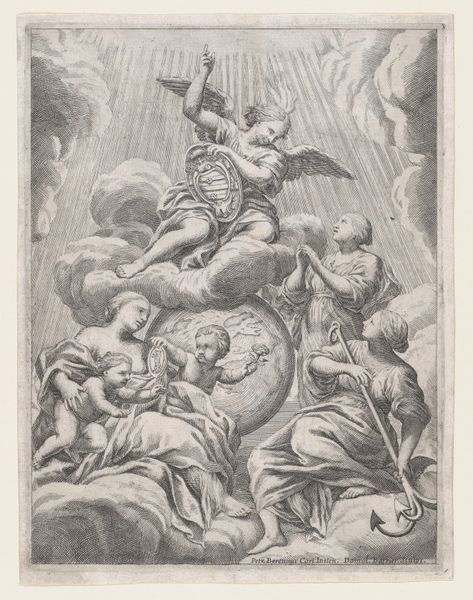
print, engraving
#
baroque
#
pen drawing
# print
#
figuration
#
surrealism
#
history-painting
#
engraving
Copyright: National Gallery of Art: CC0 1.0
Philippe Thomassin created this engraving titled “The Fall of the Rebellious Angels” sometime between 1580 and 1622, likely in Rome. This image visualizes a pivotal moment in Christian theology, the expulsion of angels who rebelled against God. Produced during the Counter-Reformation, when the Catholic Church sought to reassert its authority, Thomassin's work reflects the period's religious fervor. The visual language speaks volumes about the socio-political climate. The triumphant archangel, with his classical physique, embodies divine power, while the grotesque fallen angels represent the chaos of heresy and dissent. The engraving circulated in a society deeply concerned with maintaining religious and social order. Institutions like the Church and the printing press played crucial roles in disseminating such imagery. Understanding the historical context is key to interpreting this work. Theological treatises, Papal decrees, and social histories are invaluable resources for understanding the meaning of this engraving. Art doesn't exist in a vacuum; it's always a product of its time.
Comments
No comments
Be the first to comment and join the conversation on the ultimate creative platform.
